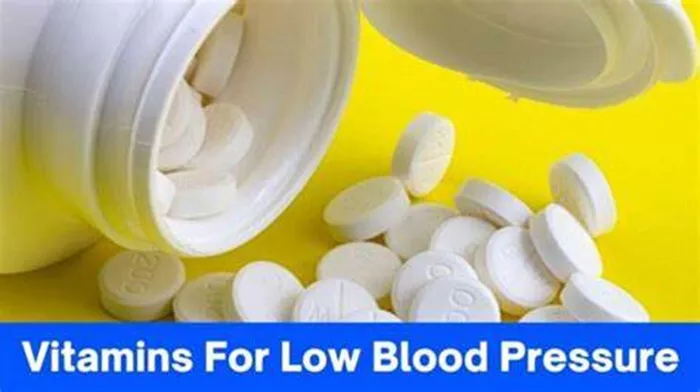High blood pressure, or hypertension, is a prevalent health issue affecting millions globally. It is a significant risk factor for cardiovascular diseases, including heart attacks and strokes. While lifestyle changes such as diet, exercise, and weight management are crucial in controlling blood pressure, many individuals are also interested in the role of vitamins and minerals in this process. This article explores various vitamins and minerals that may help lower blood pressure, their mechanisms of action, recommended dosages, and potential side effects.
The Importance of Blood Pressure Regulation
Blood pressure is the force exerted by circulating blood on the walls of blood vessels. It is typically expressed as two numbers: systolic pressure (the pressure during heartbeats) over diastolic pressure (the pressure between heartbeats). Normal blood pressure is usually around 120/80 mmHg. Hypertension is diagnosed when blood pressure readings consistently exceed 130/80 mmHg.
Managing blood pressure is critical not only to reduce the risk of heart disease but also to enhance overall health and longevity. The management of hypertension often involves a multifaceted approach, including lifestyle modifications and, when necessary, pharmacological interventions. However, there is growing interest in the potential benefits of dietary supplements, particularly vitamins and minerals, in regulating blood pressure.
Vitamins and Minerals That May Lower Blood Pressure
1. Magnesium
Magnesium is a vital mineral involved in numerous biochemical processes in the body. It plays a crucial role in regulating blood pressure by promoting vascular relaxation and influencing the balance of sodium and potassium in the body. Studies have shown that magnesium supplementation can lead to significant reductions in both systolic and diastolic blood pressure, particularly in individuals with hypertension.
Mechanism of Action
Magnesium helps to relax blood vessels by increasing the production of nitric oxide, a compound that dilates blood vessels. It also aids in the regulation of calcium levels in the body, which is essential for proper muscle function, including the muscles that control blood vessel tone.
Recommended Dosage
The recommended dietary allowance (RDA) for magnesium varies by age and sex but generally falls between 310 to 420 mg per day for adults. Supplements typically range from 200 to 400 mg per day.
Potential Side Effects
High doses of magnesium can cause gastrointestinal issues such as diarrhea and abdominal cramping. It is essential to consult a healthcare provider before starting supplementation, especially for individuals with kidney problems.
See Also: What Vitamins and Minerals are in Almond Milk?
2. Potassium
Potassium is another essential mineral that plays a significant role in blood pressure regulation. It helps to counteract the effects of sodium, a key contributor to high blood pressure. Increasing potassium intake can lead to improved sodium excretion and reduced blood pressure levels.
Mechanism of Action
Potassium promotes the excretion of sodium through urine, which helps to lower blood pressure. It also aids in relaxing the walls of blood vessels, further contributing to lower blood pressure.
Recommended Dosage
The adequate intake (AI) for potassium is about 2,500 to 3,000 mg per day for adults. However, many individuals do not meet this requirement through diet alone.
Potential Side Effects
While potassium is generally safe, excessive intake can lead to hyperkalemia, a condition characterized by high potassium levels in the blood, which can be dangerous and lead to heart problems. Individuals with kidney disease should be particularly cautious and consult a healthcare provider.
3. Vitamin D
Vitamin D is well-known for its role in bone health, but emerging research suggests it may also play a role in blood pressure regulation. Low levels of vitamin D have been associated with an increased risk of hypertension.
Mechanism of Action
Vitamin D is thought to influence the renin-angiotensin-aldosterone system (RAAS), a hormone system that regulates blood pressure and fluid balance. Adequate vitamin D levels may help to modulate this system, leading to better blood pressure control.
Recommended Dosage
The RDA for vitamin D is 600 to 800 IU per day, though some individuals may require higher doses based on their blood levels and specific health conditions.
Potential Side Effects
Excessive vitamin D can lead to toxicity, resulting in hypercalcemia (high calcium levels in the blood), which can cause nausea, weakness, and kidney problems.
4. Coenzyme Q10 (CoQ10)
CoQ10 is a vitamin-like substance that plays a critical role in energy production within cells. It is also recognized for its antioxidant properties. Some studies suggest that CoQ10 supplementation may help lower blood pressure, particularly in individuals with hypertension.
Mechanism of Action
CoQ10 is believed to improve endothelial function and reduce oxidative stress, both of which can contribute to lower blood pressure levels.
Recommended Dosage
Typical dosages for CoQ10 range from 100 to 300 mg per day.
Potential Side Effects
CoQ10 is generally well-tolerated, but some individuals may experience gastrointestinal discomfort, headaches, or skin rashes.
5. Vitamin C
Vitamin C is a powerful antioxidant that is essential for overall health. Research indicates that vitamin C may have a modest effect on lowering blood pressure, particularly in individuals with hypertension.
Mechanism of Action
Vitamin C may help improve endothelial function and reduce arterial stiffness, contributing to lower blood pressure levels.
Recommended Dosage
The RDA for vitamin C is about 75 to 90 mg per day, with higher doses sometimes used for therapeutic purposes.
Potential Side Effects
High doses of vitamin C can lead to gastrointestinal disturbances and may increase the risk of kidney stones in susceptible individuals.
6. Folic Acid (Vitamin B9)
Folic acid is crucial for DNA synthesis and repair, and it plays a role in cardiovascular health. Some studies suggest that folic acid supplementation may help lower blood pressure, particularly in individuals with high levels of homocysteine, an amino acid linked to cardiovascular disease.
Mechanism of Action
Folic acid may help improve endothelial function and promote the production of nitric oxide, leading to vasodilation and reduced blood pressure.
Recommended Dosage
The RDA for folate is about 400 mcg per day for adults.
Potential Side Effects
Folic acid is generally safe, but excessive intake may mask vitamin B12 deficiency, which can lead to neurological problems.
7. Vitamin E
Vitamin E is another antioxidant that may have a role in blood pressure regulation. Some studies suggest that vitamin E supplementation can lead to modest reductions in blood pressure.
Mechanism of Action
Vitamin E may help improve endothelial function and reduce oxidative stress, contributing to better vascular health.
Recommended Dosage
The RDA for vitamin E is about 15 mg per day.
Potential Side Effects
High doses of vitamin E can increase the risk of bleeding, especially in individuals taking anticoagulant medications.
Dietary Sources of Key Nutrients
In addition to supplementation, obtaining these vitamins and minerals through a balanced diet is essential. Here are some dietary sources for each nutrient:
Magnesium: Spinach, almonds, cashews, black beans, and whole grains.
Potassium: Bananas, oranges, potatoes, spinach, and avocados.
Vitamin D: Fatty fish (like salmon and mackerel), fortified dairy products, and exposure to sunlight.
CoQ10: Fatty fish, organ meats, and whole grains.
Vitamin C: Citrus fruits, strawberries, bell peppers, and broccoli.
Folic Acid: Leafy greens, legumes, nuts, and fortified cereals.
Vitamin E: Nuts, seeds, spinach, and vegetable oils.
Integrating Vitamins and Minerals into a Blood Pressure Management Plan
When considering vitamins and minerals for blood pressure management, it is essential to approach supplementation thoughtfully. Here are some guidelines:
1. Consult a Healthcare Provider: Before starting any new supplement regimen, consult with a healthcare professional to determine individual needs and potential interactions with medications.
2. Prioritize a Balanced Diet: Focus on incorporating a variety of nutrient-rich foods into your diet to achieve optimal levels of vitamins and minerals naturally.
3. Monitor Blood Pressure Regularly: Keep track of blood pressure readings to assess the effectiveness of dietary changes and supplements.
4. Combine with Lifestyle Modifications: Supplements should complement, not replace, other lifestyle changes such as reducing sodium intake, increasing physical activity, and maintaining a healthy weight.
5. Be Aware of Potential Side Effects: Understand the possible side effects of any supplements and monitor for any adverse reactions.
Conclusion
Managing blood pressure is a critical aspect of maintaining overall health and preventing cardiovascular disease. While lifestyle changes remain the cornerstone of hypertension management, certain vitamins and minerals may offer additional benefits in lowering blood pressure. Magnesium, potassium, vitamin D, CoQ10, vitamin C, folic acid, and vitamin E have all shown promise in various studies. However, it is crucial to approach supplementation with caution, prioritizing dietary sources and consulting healthcare professionals to ensure safety and efficacy.
[inline_related_posts title=”You Might Be Interested In” title_align=”left” style=”list” number=”6″ align=”none” ids=”3355,2132,2099″ by=”categories” orderby=”rand” order=”DESC” hide_thumb=”no” thumb_right=”no” views=”no” date=”yes” grid_columns=”2″ post_type=”” tax=””]

































